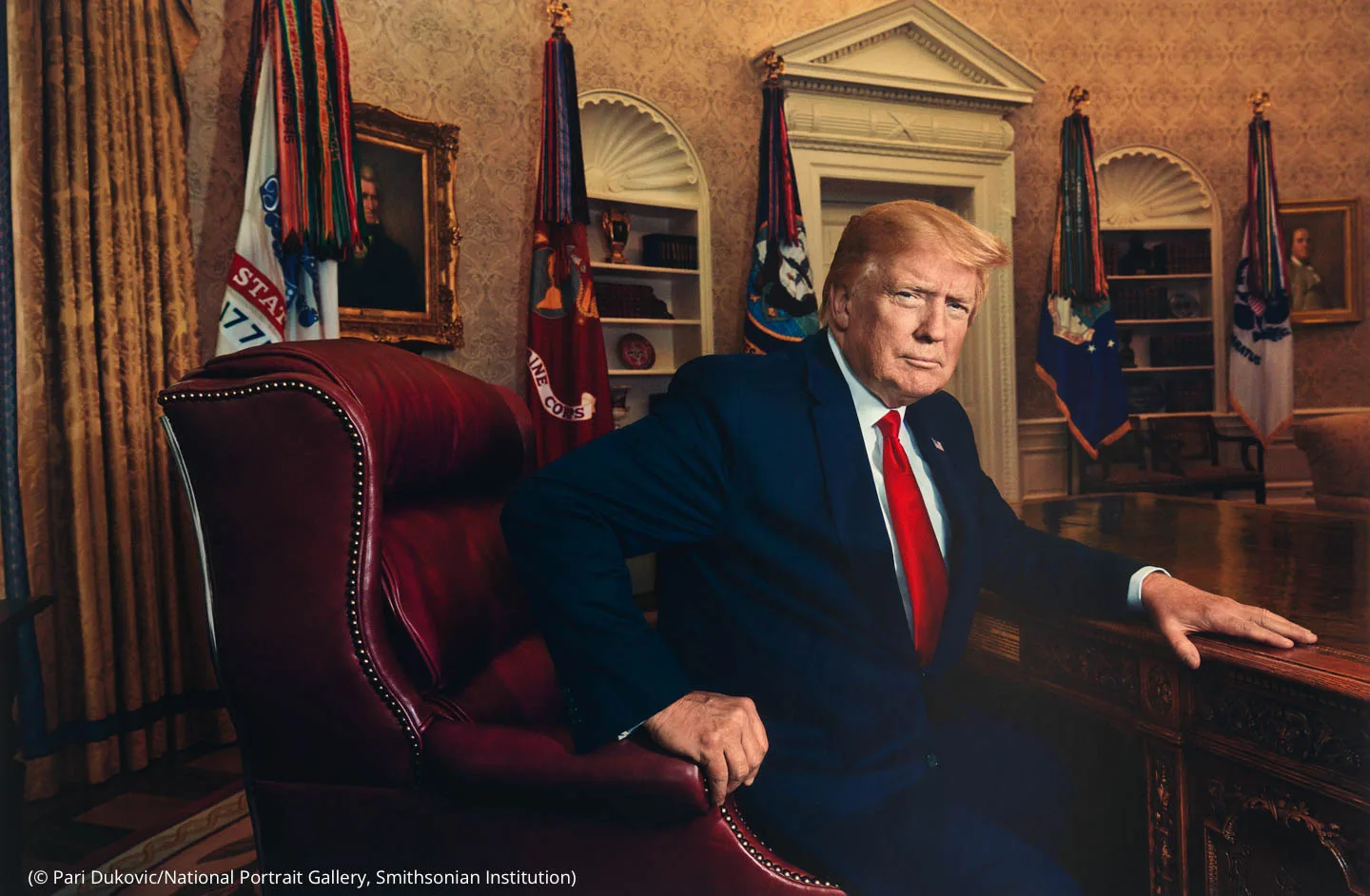Trump Crosses Every Line: From Threatening Democrats with Execution to Tarnishing the Founding Fathers’ Legacy
By D. Kholoud Mahmoud

In a week saturated with shocking statements, former President Donald Trump’s calls to punish Democrats with execution weren’t even the most bizarre part. Arguably more concerning were his attempts to divert attention from the Epstein files—behavior that stands in stark contrast to normal presidential conduct.
Execution Accusations and Accusations of Treason
In a severe escalation of political rhetoric, Trump accused six Democratic lawmakers of “seditionist conduct punishable by death.” This was his response to a video they published, which urged members of the U.S. military to refuse unlawful orders.
· On his “Truth Social” platform, Trump wrote: “This is so bad, and so dangerous for our Country. What they said cannot be tolerated. Inciting behavior from traitors!!! Jail them???”
· In another post, he added: “This is what you call sedition at the highest level. Every one of these traitors to our nation should be arrested and tried.”
· The escalation peaked when he stated: “Seditionist behavior, punishable by death!”
Who Are the Targeted Lawmakers?
The controversial video featured a group of seasoned legislators:
· Senator Mark Kelly (Arizona) – Former NASA astronaut and U.S. Navy captain.
· Senator Elissa Slotkin (Michigan).
· Representatives: Chris Deluzio (Pennsylvania), Maggie Goodlander (New Hampshire), Chrissy Houlahan (Pennsylvania), and Jason Crow (Colorado).
All have previously served in the military or intelligence agencies, lending significant weight to their statements.
What Did the Lawmakers Say in the Controversial Video?
· Senator Kelly affirmed: “Our laws are clear. You can refuse unlawful orders.”
· The lawmakers clarified: “No one is required to carry out orders that violate the law or our Constitution.”
· They warned: “This administration is pitting military members and intelligence professionals against American citizens.”
Official Reactions: Between Denial and Support
The White House:
· Press Secretary Caroline Levitt denied that Trump was calling for the execution of members of Congress.
· She focused on accusing the legislators of encouraging military personnel to challenge “lawful orders.”
· She indicated that this behavior is “potentially punishable by law.”
Congress:
· Democratic Minority Leader Hakeem Jeffries: Demanded Trump “retract his violent rhetoric before someone gets killed.”
· Republican House Speaker Mike Johnson: Defended Trump, describing the Democrats’ video as “utterly inappropriate” and “deeply dangerous.”
A Dangerous Escalation: From “Epstein” to “George Washington”
In a highly controversial maneuver, Trump shared a post calling to “Hang George Washington!” Observers see this as a tactic aimed at:
· Diverting attention from the ongoing Jeffrey Epstein case files.
· Provoking political opponents by attacking historical symbols.
· Inflaming sentiments among different political bases.
The Worrying Background: Rising Political Violence
Within a deeply concerning context, recent studies reveal:
· 85% of Americans believe political violence is increasing (Pew Research Center).
· A Politico and Public First poll confirms this alarming trend.
Notable Incidents of Violence This Year:
· The assassination of conservative commentator Charlie Kirk.
· The arson attack on the home of Pennsylvania’s Democratic Governor, Josh Shapiro.
· The killing of a Democratic representative from Minnesota and her husband.
What we are witnessing today is not merely a standard political dispute, but a genuine stress test for the foundations of American democracy. Trump’s recent statements have pushed the nation to the precipice of a dangerous slope, where political disagreements transform into existential threats. The most critical question now is: Can the American democratic system withstand this level of escalation, or are we witnessing a fundamental shift in the nature of political discourse, the consequences of which could be dire?
The true concern is no longer confined to the statements themselves, but the doors they may open for even greater, and potentially irreversible, escalation in the future.